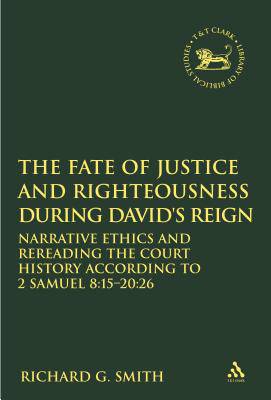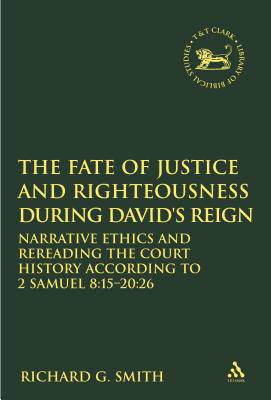
Je cadeautjes zeker op tijd in huis hebben voor de feestdagen? Kom langs in onze winkels en vind het perfecte geschenk!
- Afhalen na 1 uur in een winkel met voorraad
- Gratis thuislevering in België vanaf € 30
- Ruim aanbod met 7 miljoen producten
Je cadeautjes zeker op tijd in huis hebben voor de feestdagen? Kom langs in onze winkels en vind het perfecte geschenk!
- Afhalen na 1 uur in een winkel met voorraad
- Gratis thuislevering in België vanaf € 30
- Ruim aanbod met 7 miljoen producten
Zoeken
The Fate of Justice and Righteousness during David's Reign
Narrative Ethics and Rereading the Court History according to 2 Samuel 8:15-20:26
Richard G Smith
€ 79,95
+ 159 punten
Omschrijving
This work argues that 2 Sam 8:15-20:26 is a literary unit designed to show how David and his house failed to establish "justice and righteousness" during David's reign over all Israel. After an introductory chapter and a chapter on critical methodology the rest of the work is a close reading of 2 Sam 8:15-20:26 that pays special attention to narrative ethics. Chapter 3 makes a case for reading 2 Sam 8:15-20:26 as a coherent literary unit reflecting an ethical world-view grounded in kindness and having as its main theme "the failure of justice and righteousness to be established during David's reign." Chapter 4 presents a case for reading 2 Sam 8:15-10:19 as an account of the beginnings of justice and righteousness during David's reign in which David's kindness towards Mephibosheth is presented as analogous to a Mesopotamian royal declaration and was performed as an inaugural act of charity upon David's ascent to the throne.
Specificaties
Betrokkenen
- Auteur(s):
- Uitgeverij:
Inhoud
- Aantal bladzijden:
- 294
- Taal:
- Engels
- Reeks:
Eigenschappen
- Productcode (EAN):
- 9780567689276
- Verschijningsdatum:
- 27/06/2019
- Uitvoering:
- Paperback
- Formaat:
- Trade paperback (VS)
- Afmetingen:
- 156 mm x 234 mm
- Gewicht:
- 412 g

Alleen bij Standaard Boekhandel
+ 159 punten op je klantenkaart van Standaard Boekhandel
Beoordelingen
We publiceren alleen reviews die voldoen aan de voorwaarden voor reviews. Bekijk onze voorwaarden voor reviews.









